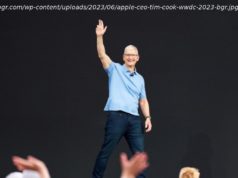The tech titan has big hopes for its new digital helper. Will it get shouted down by Google, Apple and Amazon?
OK Google, meet Bixby. Alexa, meet Bixby. Hey Siri — never mind, you all get the point.
So if Samsung’s Bixby is kind of the same but not as comprehensive or bug-free as Google Assistant or Amazon’s Alexa, why is Samsung even bothering with a me-too voice butler?
I posed this question to three industry experts who all gave the same answer: differentiation. Living in the competitive world of Android devices, Samsung needs to find more ways to maintain customer loyalty. Bixby is clearly a basic product for now; Samsung didn’t even let Bixby talk onstage during its S8 launch presentation Wednesday in Manhattan. Still, the experts said, the assistant could mature into an important part of Samsung’s competitive edge.
Bixby also gives Samsung one of its best chances at grabbing a huge chunk of the smart-home market. The tech conglomerate is talking up the idea of adding its homegrown assistant and connecting software into more of its products , such as TVs, washing machines and refrigerators.
« Bixby is a vision, a promise for the future, but a promise for which Samsung has yet to deliver, » said Gartner analyst Werner Goertz.
That Samsung felt it needed to introduce a new voice assistant, following the launch of its unpopular S Voice software in 2012, shows how hypercompetitive the voice market has become. Since Apple introduced Siri to the world five years ago, there are now four leading consumer voice helpers: Siri, Alexa, Google Assistant and Microsoft’s Cortana. All are vying to become the new operating systems for smart homes, voice shopping or connected cars.






